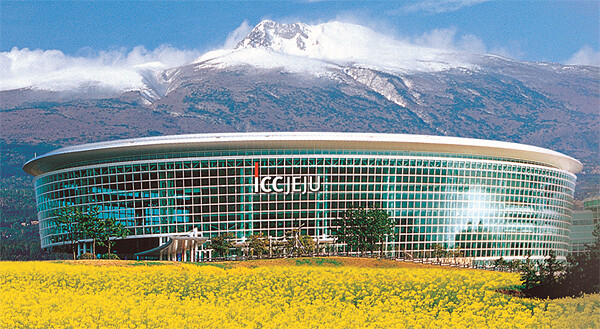
In a parallel effort, the Ministry of Trade, Industry and Energy (MOTIE) of South Korea convened a significant forum in Jeju, bringing together government, industry, and academic experts from APEC member economies to explore strategies for stabilizing global supply chains. The 'APEC Sustainable Supply Chain Forum,' held on May 9th at the Jeju ICC, served as a crucial platform for in-depth discussions on strategic directions to significantly enhance the sustainability and resilience of global supply chains.
The forum saw the participation of representatives from the APEC Committee on Trade and Investment (CTI), government delegates from APEC member economies, key industry figures, and renowned research institution experts, all actively sharing and exchanging ideas on public-private cooperation for supply chain stabilization.
The first session of the forum focused on the significant paradigm shift in global supply chains, moving from a primary focus on efficiency towards environmental sustainability and resilience against external shocks. Dr. Kim Dae-yong, Head of the Center for International Development Cooperation at the Korea Development Institute (KDI), delivered a presentation on the 'Evolution of Supply Chain Concepts from Efficiency to Sustainability,' which resonated deeply with attendees by proposing new supply chain management models to effectively address the rapidly changing global landscape. Ahmad Baihaki, a Senior Analyst at the APEC Secretariat, introduced case studies of sustainable supply chain research conducted at the APEC level and emphasized the importance of cooperation among member economies by outlining future strategic directions for APEC.
The second session delved into the major challenges faced by the private sector in the actual implementation of sustainable supply chains, along with innovative response strategies. Dr. Francis Mark Quimba, a Senior Research Fellow at the Philippine Institute for Development Studies, presented on the various difficulties encountered by companies during the global supply chain restructuring process and highlighted successful collaboration cases among APEC economies to overcome these challenges, providing practical implications. Matteo Fiorini, a Senior Economist at the OECD, shared best practices of successful sustainable supply chain construction led by the private sector and offered concrete strategies necessary for actual implementation, enhancing attendees' understanding.
The third session saw participants engaging in in-depth discussions on strategic approaches for closer and more effective sustainable supply chain cooperation among APEC member economies. Koh Jong-wan, Head of Strategic Planning at the Korea Semiconductor Industry Association, presented practical cooperation models based on Korea's successful public-private industry dialogue cases, serving as a benchmark for other member economies. Ming Shan, Vice Chairman of the China Council for the Promotion of International Trade, proposed future development directions for public-private cooperation utilizing the APEC system, garnering agreement from attendees. A subsequent panel discussion focused on the core theme of 'Building Global Supply Chains within the APEC Region,' featuring lively debates on concrete and practical cooperation directions for establishing sustainable supply chains.
An official from MOTIE emphasized, "Through this forum, we aim to provide a crucial foundation for domestic companies to proactively respond to the massive trend of global supply chain restructuring based on the core values of sustainability and resilience." The official added, "We plan to actively incorporate the diverse opinions and suggestions discussed at the forum into the formulation of future government policy directions."
By successfully hosting the APEC Senior Finance Officials' Meeting and the Sustainable Supply Chain Forum, Jeju Island is solidifying its position not just as the host city for the upcoming APEC Summit, but as a pivotal center for international economic cooperation. By providing a platform for consecutive international economic collaboration discussions, Jeju is expected to play a crucial role in contributing to the economic growth and stability of the Asia-Pacific region.
[Copyright (c) Global Economic Times. All Rights Reserved.]



























